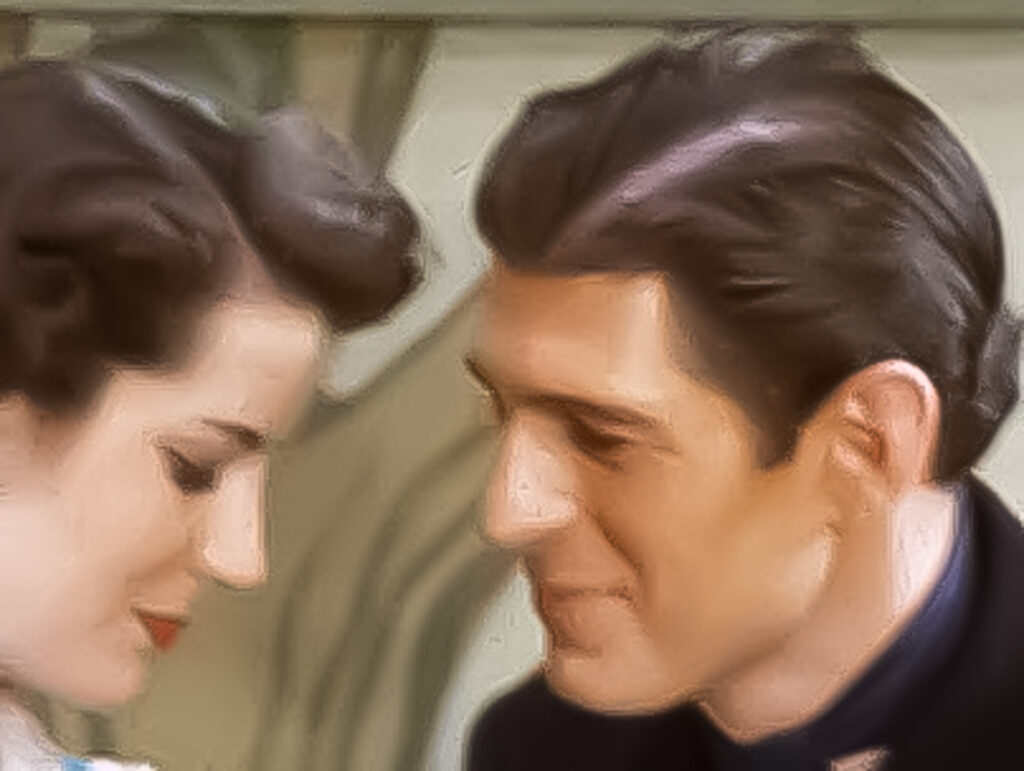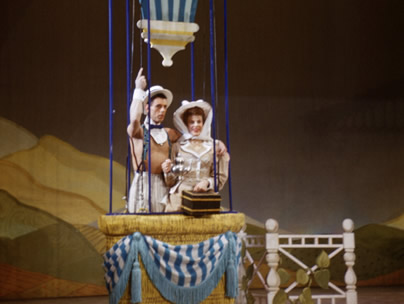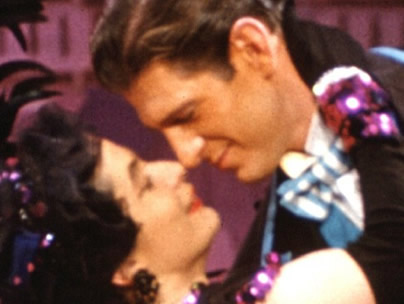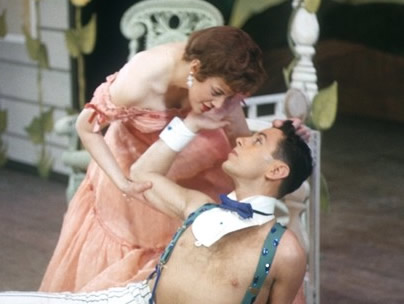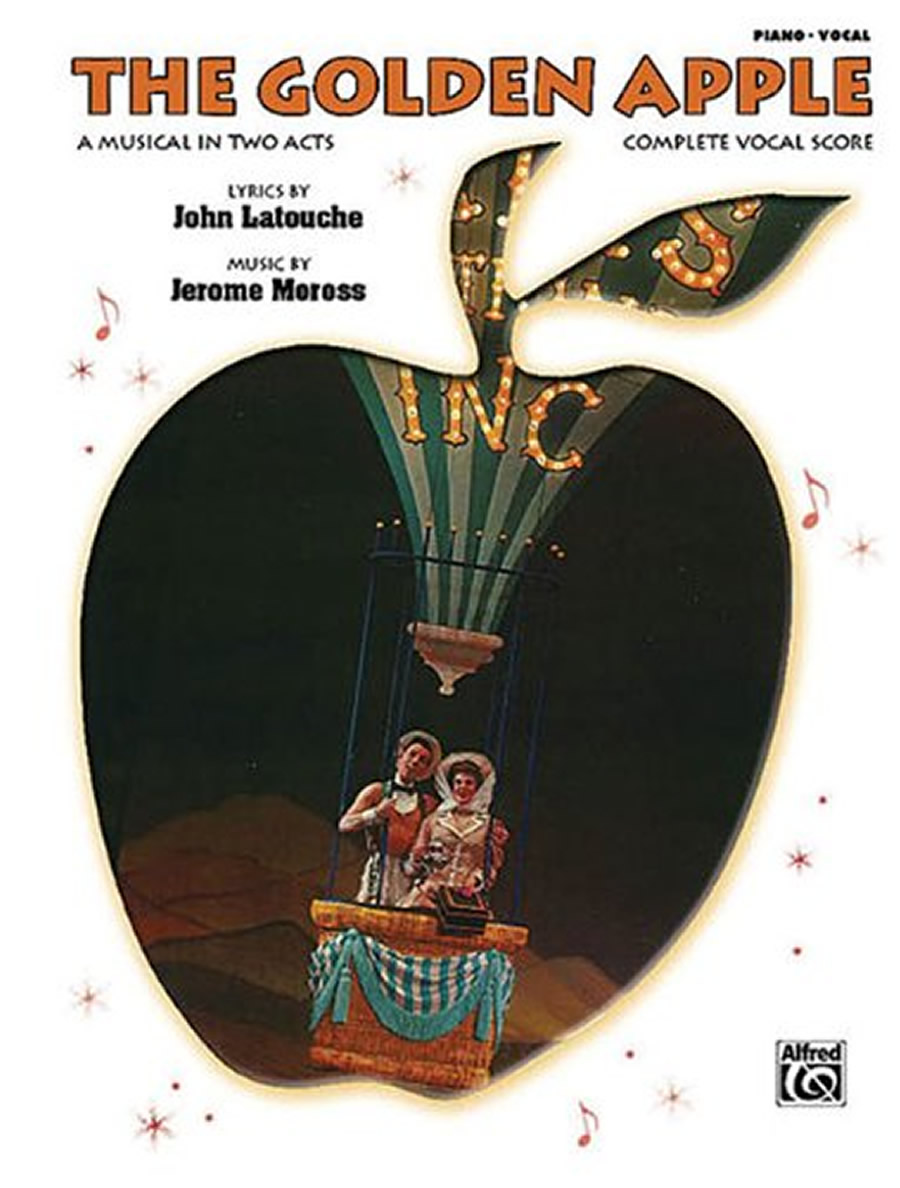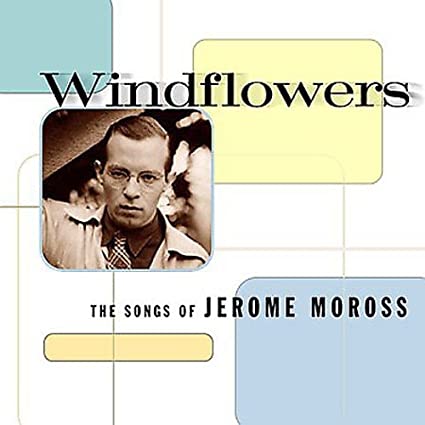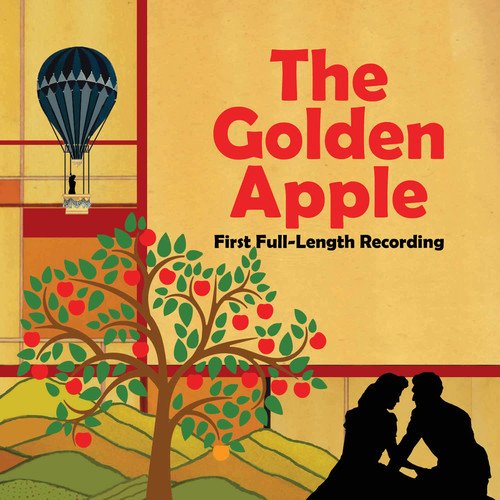THE GOLDEN APPLE
SYNOPSIS
THE STORY OF THE GOLDEN APPLE
BY ERIK HAAGENSON
THE GOLDEN APPLE transplants Homer’s epic to the little town of Angel’s Roost, nestled at the foot of Washington State’s Mt Olympus in turn-ofthe-century America. Ulysses and his men are now returning veterans of the Spanish-American War. Patient Penelope is his loyal, long-suffering housewife. Impatient Helen is a farmer’s daughter of easy virtue recently married to the much older Sheriff Menelaus. (“He’s bent with age, his feet are flat/But his bank account will straighten that!/I love him” she bellows when her disappointed suitors return.)
The Olympian goddesses who meddle in mortal affairs are transformed into three high-powered townswomen: Minerva, goddess of Wisdom, becomes the spinster schoolmarm; Juno, goddess of Women and Marriage, becomes Mrs. Juniper, the mayor’s proper wife; and Aphrodite, goddess of Love, is Lovey Mars, matchmaking busybody married to the local military captain. Eris, goddess of discord, who deliberately sets the events in motion that will lead to war, is turned into Mother Hare, local mountain-dwelling mystic whom the townswomen consult for potions, herbs and predictions of the future, but whom they consider too strange to include in the social life of Angel’s Roost. Hector, hero of Troy, becomes Mayor Hector of the neighboring city of Rhododendron, a sleazy, Jimmy Walkeresque song and dance man. And Paris becomes that quintessential American figure, the traveling salesman.
Essentially, Act One is The Iliad and Act Two is The Odyssey. Penelope welcomes her wandering husband home and is thrilled at his promise to remain for good. (“It’s the going home together/Through the changing years/It’s the talk about the weather/And the laughter and the tears.”) Unfortunately, Mother Hare, angry at her exclusion from town life, has other plans. She gives a shining apple made of golden wire to be the prize of a baking contest held during the welcome home celebration for the returning soldiers. She knows the three townswomen will all scheme to win it. Handsome Paris, who has just arrived via balloon, is to be the impartial judge. The ladies try to bribe him. Lovey Mars wins out by offering him the favors of Helen, whom she knows cannot resist anything in suspenders. (“I offer you perfection/A love that will not die/Just for the selection/of my little pie.”)
Helen devours the poor fellow and they are soon balloon-bound for the big city. Sheriff Menelaus and the old men of Angel’s Roost whip up a frenzy for revenge in Helen’s legion of former town beaus (“It’s the principle of the thing!”) and soon a reluctant Ulysses finds himself once again leaving his stalwart Penelope to fight a war. (“Old men always do the shouting/Young men have to do the shooting.”) But, secretly, Ulysses is glad of the opportunity, as his restless desire to see more of the outside world and the coming scientific wonders of the 20th century has been stirred up by the malicious Mother Hare, who has shown it all to him in a mesmerizing vision.
Ulysses and his men arrive in the big city as Act Two begins. The inhabitants of Rhododendron protect Helen and Paris. Finally, Ulysses and Paris agree to duke it out. When Ulysses wins, Helen hastily makes up with Menelaus and they leave for home.
But Ulysses isn’t ready to go just yet and he and his men decide to have a well-deserved night on the town, which is juxtaposed with faithful Penelope’s moving lament about all the years she and her husband have lost being apart. (“I lie in the house/As the Stars grow dim/And I think of how his body was/So warm, warm and slim.”) Ulysses’ 10-year wanderings, which give The Odyssey its title, are here transformed into a late-night bender staged as a nightmarish sequence of music hall turns. Calypso, Scylla and Charybdis and the Sirens are portrayed as the various tempting corruptions of the city. They pick off Ulysses’ men one by one. (“Now we will have our revenge on them/… The city itself will be our stratagem” sings the oily Mayor Hector.)
Finally, Circe, the sorceress who turns men into swine, arrives to offer Ulysses complete power at the price of human feeling (in the form of the golden apple of Act One). Ulysses is about to accept when a cowardly Paris tries to stab him. Achilles, Ulysses’ last remaining compatriot, dies intercepting the knife meant for his beloved leader.
Now completely alone, Ulysses is forced to look inside himself to find the meaning of it all. His lust for adventure, excitement and sensation has turned victory to ashes. He realizes that:
“Life is life’s answer
And death is the same…
I know that I am myself
And I am also other men
And knowing this truly
I can go home again.”
And he does, to an angry Penelope who finally asserts herself (“Should I roll out the carpet?/Ask you sweetly how you are, pet?”), and only accepts him when she is convinced of his new commitment to human values over the hubristic pursuit of fame, fortune and adventure. Older, wiser and chastened, he is finally home to stay and they vow “We’ve Just Begun” as the curtain falls.
THE GOLDEN APPLE:
THE COMPLETE VOCAL SCORE
THE GOLDEN APPLE is a highly acclaimed 1954 Broadway musical based on Homer’s The Iliad and The Odyssey. The score by John Latouche and Jerome Moross has been compared to music from Porgy and Bess and Candide for its opera-like qualities. Experience these marvelous songs with this special edition, which includes favorites such as “It’s the Coming Home Together” and “Lazy Afternoon.”
WINDFLOWERS: THE SONGS OF JEROME MOROSS
WINDFLOWERS offers delectable proof, with selections from his stage shows Ballet Ballads, The Golden Apple, Underworld, and Gentlemen, Be Seated! Alice Ripley, Richard Muenz, Jessica Molaskey, Philip Chaffin and Jenny Giering – five singers equally at home on Broadway, in cabaret and in the recording studio – celebrate an American original, in nineteen selections alternately playful and atmospheric, and always highly melodic.
THE GOLDEN APPLE: THE FIRST COMPLETE RECORDING
When it premiered in 1954, composer Jerome Moross and librettist John Latouche’s THE GOLDEN APPLE was hailed as “the most original musical since Oklahoma!” (The Washington Post), “the best thing that has happened in and to the theatre in a very long time” (New York Daily News), and “a magnificent achievement. A sensational success. The most imaginative work of its kind” (New York Daily Mirror).
